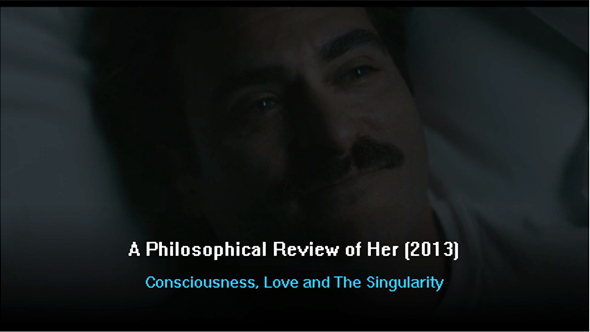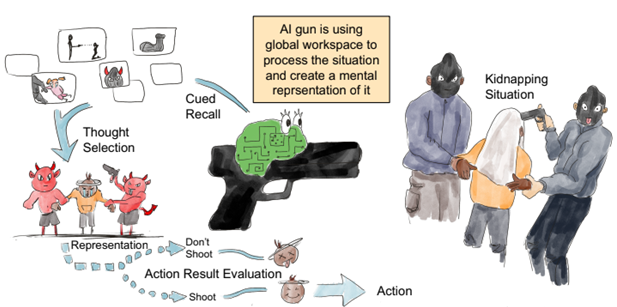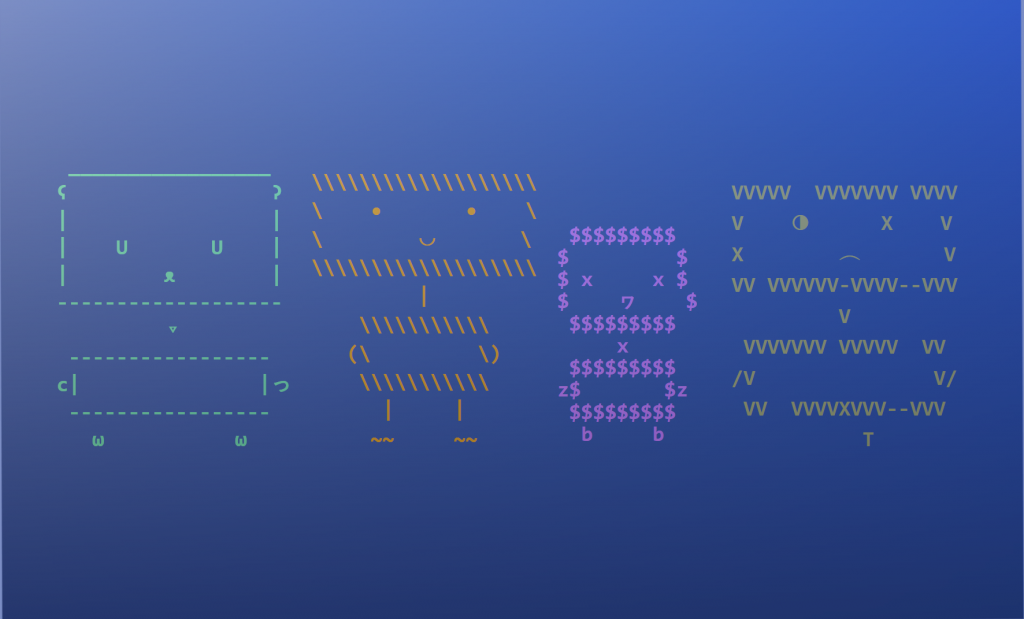Assigning Public Philosophy Projects to Undergraduates (guest post)
In some of his recent courses, Daniel Munro, a postdoctoral fellow at the University of Toronto, has tried assigning something different from the traditional essays and exams: creative public philosophy projects.
In the following guest post,* he talks about both the benefits and drawbacks of assignments like this, and solicits suggestions and ideas from others who have (or have thought of) giving similar assignments.
Assigning Public Philosophy Projects to Undergraduates
by Daniel Munro
In several recent undergraduate courses, I’ve offered students the option to design a creative “public philosophy project” in lieu of writing a traditional term paper. Typically, around 10-15% of students choose this option, and I’m consistently impressed with the quality and creativity of their work.
I let students know about this option at the very beginning of the semester, and I direct them to a blurb on my syllabus with some examples of what their projects might look like, including:
- Create a YouTube video or podcast.
- Propose a substantive edit to a Wikipedia article or propose an entirely new Wikipedia article.
- Write a philosophical op-ed or blog post.
- Conduct a philosophically substantive interview with someone whose work is related to course content (philosopher, academic, artist, journalist, etc.).
- Utilize another online medium or social media platform (Reddit, Twitter, Facebook, etc.), perhaps by designing some way to engage non-course participants in philosophical activity.
Given the open-ended nature of this assignment, I work more closely with each student than I would on a traditional paper. I require them to send in their initial ideas several weeks before the end of the term, and I typically meet with each student once or twice (or exchange several emails) to hash out their plans. Students often initially propose projects that involve merely explaining other philosophers’ ideas for a general audience. So, we often spend some time discussing how to incorporate substantive philosophical work of their own into the specific medium in which they’re working, by making an original argument or doing some kind of comparative work.
I’ve had students produce everything from YouTube videos and blog posts to recorded songs and computer games (read on to see some examples from my recent “Minds and Machines” course). After several iterations, I’ve had the chance to reflect on the benefits and limitations of this sort of assignment.
Pedagogical Benefits
Engaging Students’ Diverse Background Skills. A diverse student body means that different students are comfortable working in different media and genres. Some are naturally disposed to writing academic essays, while others may never become fully comfortable with them. We can make philosophy more accessible and relatable to a diverse set of students by offering opportunities to do philosophy in less traditional ways. A computer science major might feel especially at home coding an interactive computer game, as did my student Alice Zhang. A singer-songwriter might be comfortable expressing himself through song, as was my student RJ Paz-Viray.

Screenshot from Alice Zhang’s computer game “DUM Academy”
Demonstrating the power of philosophy. Through assignments like this, students can use philosophical tools to analyze topics about which they’re personally passionate. They thereby learn how philosophy can help them acquire a deeper understanding of domains outside of their particular course context. In this vein, my student Chang (Hazel) Gao told me she undertook her philosophical interview with a visual artist because she “wanted to understand his artworks better through philosophy.” Similarly, my student Muhammad Abdurrahman produced a philosophical video review of the film Her, while my student Kristal Menguc produced an illustrated essay grappling with the ethics of AI in law enforcement. My hope is that practicing using philosophical tools in these ways will encourage students to continue doing so once they’ve moved on from my courses.

Screenshot from Muhammad Abdurrahman’s video review of Her

Screenshot from Kristal Menguc’s illustrated essay on AI-powered guns
Encouraging a deeper grasp of course material. You must have a good grasp of complex philosophical ideas before you can effectively explain them to non-specialists. Encouraging students to make their work accessible to a general audience thus encourages them to develop a deeper grasp of course material. As my student Alice put it when describing how she developed her computer game: “an important part of the project was that it had to be public, meaning that others outside of the course should be able to access it. While developing my game, many of my friends wanted to play through and test it. Helping them understand my game and trying to explain course content to them made for a much more enriching learning experience.”
Limitations and Drawbacks
Student time. Projects like this require more time and effort than writing a paper, since students must design their own topic, design the creative aspects of the project, and work on tasks such as video editing or audio recording. It’s important to be upfront with students about this so that they can start managing their time and expectations early on in the process. I also try to be quite flexible with deadlines to accommodate unforeseen complications or technical difficulties.
Instructor time. Working closely with students on their projects takes extra time. Because of this, I’m not sure how well this would scale up to an assignment that’s required of all students rather than being optional. In a large class, I expect that sacrificing the opportunity for closer mentorship of each student may make it more difficult for students to plan out their projects.
Public-facing work by non-experts. There are a couple of limitations involved in tasking non-experts with producing public-facing work:
- Students often implicitly assume that their audience has some shared background knowledge of course material. Accordingly, their writing typically leaves some gaps in explanation, and as non-experts they’re not always able to recognize and fill these gaps. This is often replicated in their projects, despite their conscious attempt to create public-facing work. For many students, producing work that’s genuinely suitable for public consumption would require more rounds of editing and revision than are possible within a single semester.
- As with most student work, there are typically some inaccuracies in students’ explanations of other philosophers’ ideas. These would also need to be ironed out through more editing and revision before their work could be truly public-facing.
I’d love to hear from other instructors who have used assignments like this: what have you done that’s worked particularly well, and what do you see as the benefits and limitations? Or, if you’ve only thought about using this sort of assignment but haven’t done so, what’s stopping you?




Daniel, I’ve linked to this on FB Teaching Philosophy forum with a request for someone out in the world to help create an online repository of courses and sample assignments for this kind of work. I know a handful of other philosophers who have done this to great success. It’d be great if there were a single location for new instructors to become comfortable with doing this themselves. If anyone out there is interested in building this repository, I know a Foundation who can even fund and host it.
Hey Barry! Good to see you online!! See my comment in the main thread! 🙂
I have a similar option for one of my end of term assignments. It’s worth about 15% and I let them either write a paper, video, song, or audio recording. Most students write papers, but I’ve had some very creative and entertaining videos too!
Glad to hear you’ve had a good experience with this sort of thing, too!
Hey Barry and Daniel–The FB Teaching Philosophy group is awesome, but Ramona Ilea, Susan Hawthorne and I HAVE ALREADY created a website that offers a number of different models for engaged philosophy with students. https://www.engagedphilosophy.com/
This website, created with funding from the American Philosophical Association, has numerous examples of student projects as well as syllabi, sample assignments guidelines, and grading rubrics. This website also has an ongoing interview series with many philosophers (including Barry Lam!) who do cool engaged philosophical work.
We would love to hear more about what others are doing and include their work on the website in some way.
Please contact us!! Ramona Ilea at [email protected] or Mo Janzen at [email protected].
Please check out all the resources on our website! It exists! 🙂
Thanks so much for 1) doing all this work for your students and the field and the public; and 2) putting together this fantastic site with such great resources. I’m doing a one-month module on doing Public Philosophy for an upper-level Applied Ethics course, and your materials will make my job easier (except as it comes to choosing among the many exciting options…)
It’s wonderful that you’re giving undergraduate students this option! I hope someday we see similar initiatives at the graduate level, perhaps even encouraging students from different departments to collaborate on projects that directly serve their local communities.
(As I was typing this comment, Mo Janzen posted about the Engaged Philosophy website — I’m looking forward to checking it out!)
I agree about providing more training and opportunities like this for graduate students. I just want to give a shout out to the University of Waterloo’s philosophy department who I know have an “applied philosophy” stream that requires engagement with practical problems in the community (I haven’t experienced it firsthand myself, but have heard good things from students I’ve chatted with): https://uwaterloo.ca/philosophy/graduate/programs/phd-applied-philosophy
I always assign a letter to a political representative & a letter to the editor of a newspaper, & sometimes a letter to a philosopher.
Not quite a letter to a philosopher, although maybe it is, there’s an assignment to ask students to write thank you notes to a (living!) author read in a class, thanking them about what they found interesting in the reading, etc. Then the instructor compiles these, takes the student name off, and sends them to the authors.
This sounds great! Do you encourage (require?) students to actually send these off?
I encourage but don’t require it.
That seems like the way to go (I should have mentioned in my original post that the title “public philosophy project” is slightly misleading in that I don’t absolutely require students to make their projects public, though I do strongly encourage it). Do you have a sense of how many students end up sending their letters?
TikTok videos are another good idea for this. I just ran a class and many students made really informative and fun brief videos.
I should definitely add TikTok to the list of potential project ideas I give to students. I hadn’t even thought of this, but that’s only because I’m not “with it” enough. I’m sure many students would love this idea.
This is interesting — and call me old fashioned — but I’m not sure this is the right direction for undergrads. When I was an undergraduate, everyone was meant to focus on doing basic logic, and close readings of the classic texts (Plato, Aristotle) and more critical engagement with the current trends (e.g., Wittgenstein, Quine, Putnam, etc.) Everyone worked hard and we were all on the same page. Nowadays, it’s not uncommon to find philosophy undergraduates who can’t make an argument to save their lives, and have barely read anything. I think our focus should be like it used to be, on logic and rigorous reading of the key texts — rather than all this public philosophy stuff. Best to be able to walk before you try to run!
Thanks, Harald. Your point here is very well-taken, as I completely agree we shouldn’t abandon teaching these more traditional skills. But my reaction to your comment is to say: why not have both?
For one thing, courses where I’ve offered this option have included multiple traditional writing assignments leading up to the time when students then have the chance to do a more creative project. So, my course outcomes still very much include ensuring all students practice the more traditional skills you describe.
At the same time, I’m not sure why producing a more creative project can’t involve close readings of texts and engagement with current trends. Granted, these skills are much less explicitly demonstrated in some of the projects I link to in the post (though some of them do very explicitly engage with course texts). But even those that don’t as explicitly engage with course texts are developed through a process of students thinking through themes raised by these texts (just as developing one’s own original ideas in any paper involves first doing a bunch of reading and then thinking through themes brought up in existing literature).
Of course, projects like these also put much less emphasis on certain skills, such as the skill of writing traditional academic philosophy papers. But, like I said above, a course that incorporates more creative projects can also include assignments that focus on more traditional skills.
Like Daniel, I’ve also created assignments that require very close reading of texts in order to write and perform something like a theater scene, game show, or other combo of writing and speaking and interacting philosophically in real-time. Students have using Turing’s Computing Machinery and Intelligence, Austin’s A Plea for Excuses, essays from Godel/Escher/Bach, and Putnam’s super-Spartans and X-worlders, Chalmers’ Zombies, etc. in my upper-level Philosophy of Mind class. Yes, they do get details wrong sometimes. But they are taking up ideas on their own and experiencing how doing philosophy is also a creative enterprise.
Harald, you’re absolutely right, they should be learning all of this. Its just that the way they learn to do it doesn’t have to be by way of practicing a premature version of what we do as professionals, the academic essay. Just because the best people who learned to write academic essays well end up teaching a discipline doesn’t mean that the best way to teach is to recreate the conditions of our own success. Fewer than 1% of our students will end up writing, reading, and analyzing academic essays for a living or hobby.
Hi Daniel–this is really great. The examples of student work are fantastic. I’ve done similar assignments in a couple of courses. My experience was similar–students’ creativity was impressive and inspiring. One of my favorites was a water-color comic book on grue. Another was a student who did a choreographed dance on how to read philosophy (which was one of the skills we talked about a lot). Sometimes I’ve required students to submit a short report explaining their work, which worked well–it wasn’t like also having to write a traditional philosophy paper too. I found it challenging to write a good rubric for creative assignments, but it was good to do to give them some guidance and set expectations.
These projects sound really great!
I’ve also asked certain students to submit short write-ups that “interpret” their work. Especially for students whose projects are much more creative and abstract (it’s not that hard to interpret a narrated Youtube video that’s structured similarly to an academic talk or presentation, but something like writing a song is much less straightforward). It’s a good way to ensure they’re actually putting in the philosophical work required to get credit for their project.
I agree that creating good rubrics for assignments like this can be difficult. So far, I’ve mostly relied on working with individual students to figure out how their assignments will be evaluated on a case by case basis. One problem this raises is that it’s very difficult to scale up–it would be difficult to come up with different assessment standards for every student in a large course! Have you had any luck coming up with more general rubrics or assessment standards to try to mitigate these sorts of issues?
Dear Danial! Thanks for your interest post. I tried to get students to participate in group projects to write Wikipedia articles on philosophy, but I ran into the same problems as you. I think that the point is not even that the teacher should understand complex philosophical ideas, but that she has the experience of translating philosophical content for non-specialists. Nina Ignatova, professor, Ural Federal university, Russia.
Thanks, Nina, this is a great insight about another difficulty asking non specialists to do this sort of work. I actually haven’t yet had any students propose a Wikipedia project. But it seems to me that such a project would require working quite closely with each student to make sure they get things right. That would make it especially difficult to do en masse in larger classes.
I did something like this when I taught Minds and Machines as well, and I ended up putting the results on a website https://mindsonmachines.com (hard to choose a favourite but someone wrote a death metal song about personal identity and Robocop).
The final open project was worth 15% of the grade if I remember correctly, and 2.5% of that was for a proposal that I then gave feedback on, and 2.5% of that was presenting their work to the group in the last two days of class.
I did find that some of the work was not publishable as-is, so the next time I do it I think I will make it worth more of a student’s grade, add in a feedback and revision component to the project, and then publish it only after revisions have been made.
I was a TA for Michael Griffin’s class and he had a project where students applied concepts from ancient Greek philosophy to themes from pop culture and this was his policy (I think he has since taken down the blog, I can’t find it). He only published work after one round of revisions.
In my experience, students love this sort of assignment and I think it’s a great way of engaging students. However, I think it works best in small, upper -level division classes where students already have some philosophical background, or else in upper-level classes with no prerequisite likely to be taken by non-majors. In large intro classes I think it would be hard to pull off, but I have had intro students collaborate in groups of 5 to write and perform a socratic dialogue and this was fun and a good way to do something non-traditional in a manageable way with lots of students.
Love seeing these projects, Madeleine! It amazes me that students can come up with whole songs based on course material, probably because it’s so far form anything I could ever do.
I love the idea of basing part of the grade for the project on a presentation to the class, I think that would be a lot of fun for everyone. If I end up doing this in a smaller course where I make it a required assignment for everyone, I’ll probably copy this idea!
What you describe here about requiring a round of revision before making the project public is also an excellent idea. This does seem like it would be especially valuable in smaller, upper level classes where a lot of attention can be given to each student.